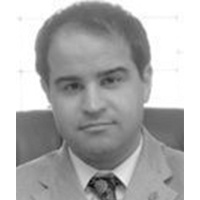Oakland Felony Lawyer, Illinois
Not enough matches for Oakland Felony lawyer.
Below are all Oakland Criminal lawyers.
Andrew L. Petty
✓ VERIFIEDAccident & Injury, Personal Injury, Divorce & Family Law, Criminal, Estate
Licensed in Illinois and Florida
R. Sean Hocking
Real Estate, Social Security, Estate, Felony, Accident & Injury
Status: In Good Standing
Stephen George Friedel
Accident & Injury, Criminal, Lawsuit & Dispute, Traffic, Juvenile Law
Status: In Good Standing Licensed: 28 Years
Ronald Tulin
Civil Rights, Workers' Compensation, Criminal, Americans with Disabilities Act
Status: In Good Standing Licensed: 56 Years
Kirsten Robin Becker
Traffic, Trusts, Divorce & Family Law, Criminal
Status: In Good Standing Licensed: 34 Years
David Eberspacher
Traffic, Workers' Compensation, DUI-DWI, Medical Malpractice
Status: In Good Standing Licensed: 46 Years


